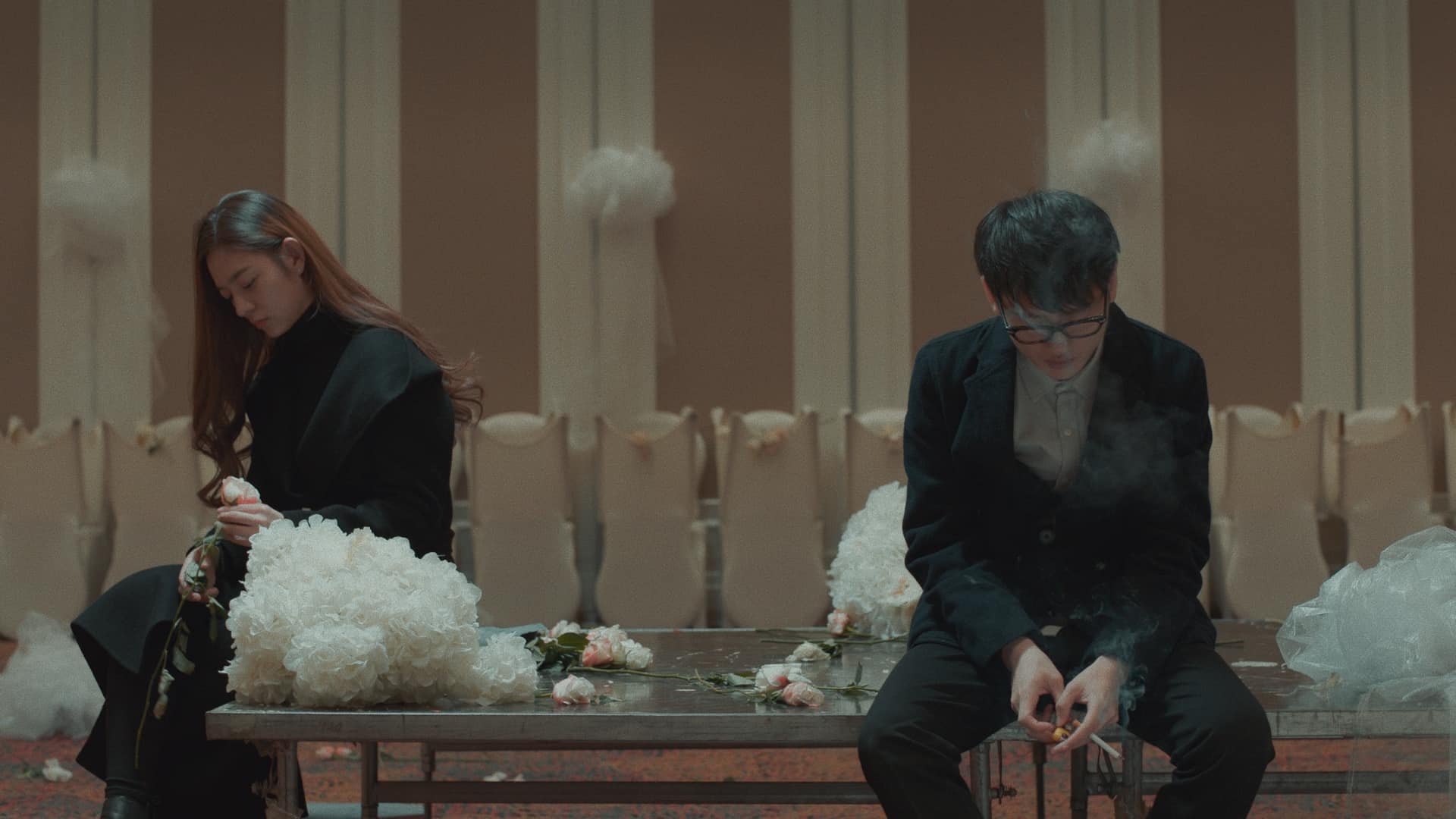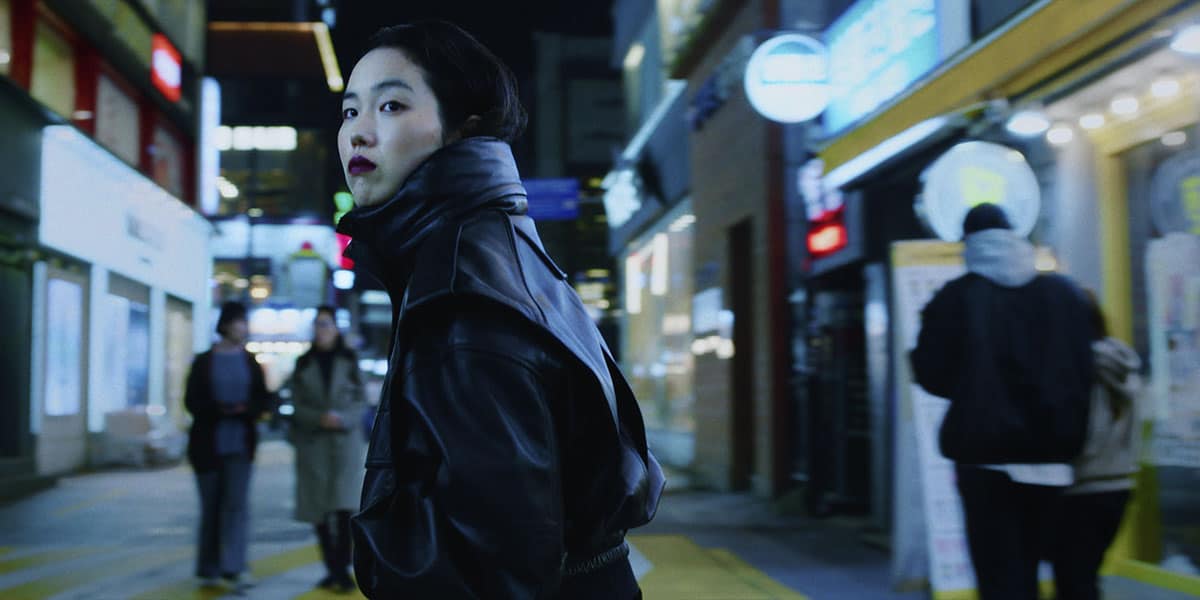by Pawel Mizgalewicz
Director Lee Yi-Fang introduces her debut film as “not a typical Eastern-Asian movie”, but what could she be meaning? I assume she refers to the fact that the movie is mostly about sex. Yes, the subject is not really romance, not the building tension and longing and loneliness that hopefully explode in a passionate bedroom scene, or any other lofty theme like that. It's mostly about sex as a part of “normal” life – important, preferably enjoyable, but nothing that magical in itself. The pragmatical approach is indeed something that posits the movie as a piece quite unique, Eastern Asia or otherwise. This straightforward approach might resemble the recent Japanese “Hand”, for example – a film notably ironic as an official softcore-porn production that didn't seem to be that excited about sex itself. But unlike that one, “Little Blue” doesn't even contain nudity, and is generally much more female-targeted than most of the famous “a young girl playing the field” stories.
“Little Blue” screened in CinemAsia

Xiao Lan is no nymphomaniac, no volcano – she's just, well, active, a real girl that we get to know in the context of her relationships (mostly with men, but also her mother and friend). By staying close to her protagonist and presenting her story so matter-of-factly, Lee also paints a credible picture of what young women look for and what they find in sex in current smartphone-led times, when a thousand of potential partners is only one swipe away.
If you ever watched any young adult movies, you already know what kind of a character Xiao Lan is supposed to be when we meet her. She wears very big glasses, after all, a timeless “grey mouse” girl prop, with some real ugly shoes to boot. And yes, of course, she is indeed the kind of awkward, pale, stiff girl. The kind that flinches scared when her friends who already wear make-up and looser clothes make sexual jokes… the kind that usually stars in high school dramas which want to make it more “relatable” for young girls. Fortunately, it's already pretty fun to watch, as Wang Yu-xuan also portrays the introvert character as intelligent and unimpressed as we'd all wish to be in high school. Watching her dead-stared ripostes never gets old, but also makes Lan a character we can easily fully believe in, as Wang subtly (at least for the standards of a teenage film) displays new emotions during the developing story, and in a right moment, just one tear rolling down her face can be truly heartbreaking.
Lan's nerdy life picks off quickly when Wu Miao comes around – acted by an intriguing debutant, Ting-qi Ye. Wu Miao is tall, plays football, has a face of a K-pop idol, pursues girls relentlessly and isn't willing to accept what “no” means. Xiao Lan's returned attraction is shown to us with an entertaining game of appearances – she treats the boy cold in person, but we also see that she does occasionally look at his Instagram profile, for example. Of course, like any self-respecting teenager, she keeps an indifferent face through all of this, so, for the whole movie, we're always left with some wiggle room to guess about what exactly she feels towards Wu Miao, or any other character around. But, inevitably, something is surely awakened – soon, the glasses come off, and the girl sneaks into her mother's room to use the make-up cabinet. Lan is now in the game, and with many interested boys in school and even more appearing every day on dating apps, she gets to learn quickly about all the joys and disappointments of being with men, starting to find out what it is she's into in life.
Where there is a woman getting joy from sex, there is also the social shaming, as you can expect. “What's the big deal about sex?” could be the film's tagline, with the 15-year-old characters often questioning why their lust is taboo-ized and ostracized to such degree. “People in the past used to have multiple children at this age, why is it now not allowed to have sex until 16, did we regress instead of progressing?”, blabbers Wu Miao during a lesson – with the teacher and students mostly disgusted at the cheekiness, to be fair, but the point sticks throughout the movie. The act of two people meeting is presented as something so simple and natural, it looks downright crazy how much fuss can be made about it, with the flirting, games, pretending, hiding, and also the social consequences. Lan has to watch her reputation, with her sexual choices being potentially made public and judged, and herself humiliated.
Here is where the girl's relationship with her mother becomes really interesting – at some point we realize that, in a way, both of these single women, who are each other's closest contact, try to hide the sexual part of their life from one another. In part because they're just afraid to admit what their relationships are really like, if you stop and think about them. And in a deliciously complex twist, when the daughter suffers heartbreak or social shame, she cannot always count on the support of the mother, as the latter is also busy with her own romances. It's not a judgy movie, and all the characters are rich like that – they're cold on the usual and only vulnerable when they can really open to somebody, and they all try the best they can to juggle their horniness with responsibilities towards others, while never really being able to please everybody else and themselves at the same time. One deserves to be happy, of course, but to be happy with others, they have to make choices, as we are soberly reminded on every step of “Little Blue”. Instead of the common “passionate love above everything else” message, the movie asks realistically about the possibilities of compromise in our lives – and, hopefully, that compromise bringing true happiness.
The subtlety of acting and humor make “Little Blue” way more of an interesting watch than the plot summary would probably suggest, and it turns out to be a valuable fresh perspective on the often-discussed matters – not only on the scale of Taiwanese cinema. With no intention to scandalize, the film is refreshingly honest and easily points out how important both finding love and finding the clitoris can be, with the relatable characters summarizing one of the modern women's common hardships when it comes to relationships: that it's way too easy to find a man, and way too hard to find a good man. A pretty easy film to watch, with universal themes, “Little Blue” will hopefully not remain limited to the Asian festivals anymore and the appearance on Amsterdam's Cinemasia will only be the first of many on the way to the global exposure it deserves.

















Hi, correction on this review: you’ve conflated two of the male characters into one. The boy who pursues Xiao Lan first is Wu Miao, played by Ye Tingqi, who is Xiao Lan’s classmate and the football player. Roy Chang plays Tim, an adult man who Xiao Lan finds through an internet dating app and is the one who gives her the cheesecake during one of their hookups.
thank you for letting us know, the article is now corrected
Thank you for the correction, I indeed used the wrong name for Wu Miao. It’s been changed.